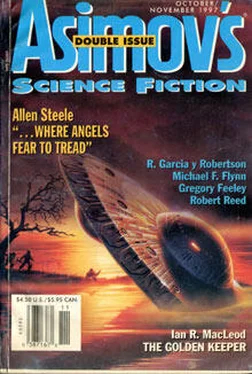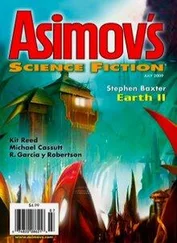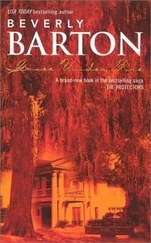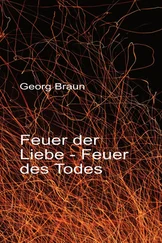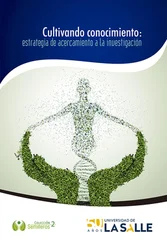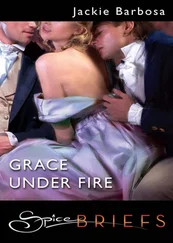Without warning, the tangle suddenly opened overhead. Toni strode into a cool cathedral forest of kilometer-tall trees festooned with great red perfumed blossoms. Slanting Prospero light glittered off the wings of giant insects flitting from flower to flower. A forest imp flew by, a tiny pale humanoid with huge gold eyes, riding on the back of a two-meter dragon-fly.
Toni kept his optical sensors aimed low, trying not to tread on the humans hidden by tall ferns and elephant grass. Ten more hours of slogging and he could go back to Verona.
“Myself was from Verona banished
For practicing to steal away a lady…”
—
Two Gentlemen of Verona, Act IV
At first light, the morning after Carnival, the Noble Dog rode across the Ponte Romano, the ancient stone bridge over the Adige, leaving Verona. Green suburban hills rose up on the far bank, dotted with palaces, pleasure gardens, churches, and Roman ruins. After him came Proteus with the led horses.
Antonio now had a name to put behind the mask—a name, but not a face. His Lady-in-Gold was Silvia Lucetta Visconti, the daughter of Matteo Visconti, exiled Lord of Milan, reputed to be the most beautiful woman in northern Italy. Proteus had come up with this news, along with word that she had taken the road east towards Padua and Venice. Antonio’s manservant was a wizard at ferreting out information—part Gypsy and part thief—never failing to turn up a useful fact. Always anticipating Antonio’s wants, and seeing to his needs.
That he had still not seen Silvia made her all the more attractive. Every woman Antonio knew paled in comparison to how he pictured her—no flesh-and-blood female could hope to compete with his imagination.
This obsession led to caustic words between Antonio and his uncle Cangrande, the Big Dog—sparking a family argument that rebounded off the romanesque arches of Cangrande’s audience chamber, keeping servants and mistresses awake well after midnight. The Lord of Verona had an absurdly cherubic face, pierced by a pair of sharp compelling eyes. Dismissing Silvia Visconti out of hand, he reminded his nephew of the “bad blood in that family.” (The Vipers of Milan were infamous for savage despotism, murderous cruelty, and engaging in all manner of sexual manias—in addition to giving good government and encouraging the arts.) How could the daughter of an exiled enemy be a fit object for marriage?
“Who said I mean to marry her?” Antonio retorted. Being obsessed with a woman was a poor excuse to wed her.
The Big Dog was not mollified. “What if you get her in pup? The bitch could be bait. I do not want any half-Visconti bastards running about, hoping to be put up as heirs to Verona.”
Down-and-out though they were, it remained the Visconti dream to hold all the Piedmont, plus as much of Tuscany and the Veneto as they could grab. Even in exile, they were far too cozy with the Emperor—and would happily use Verona as a step to regain Milan. “Have no more to do with her,” Cangrande commanded, his habitual inane grin masking a ruthless will no sane nephew dared brook.
Bidding the Big Dog a stormy farewell, Antonio stalked off to do as he pleased. His obsession might be unhealthy—but by God it was his. If he wanted a horse or a dog, he got it. Women were at least as important. True, he did feel a little like that old fool Dante, who still mooned over some woman he had glimpsed in the market decades ago. But at least Antonio was going after his Silvia, not locking himself away in a borrowed room, wasting paper on some impossible terza rima epic to her.
On the east bank of the Adige, he passed the Teatro Romano, the ancient open-air theater, and the old cathedral of Santo Stefano with its great octagonal red-brick campanile. There he paused, treating himself to a last view of the city, wreathed in breakfast smoke and still recovering from Carnival. Then he was off, riding through the Porta Vescovo, with Proteus at his heels.
The Corso Venezia, the dusty via Venezia that led to Padua, Venice, and the sea, rolled through green pastures cut with stone fences. Antonio stopped only once near Soave to rest the horses, and put in a supply of light, dry white wine. On his left, vineyards came right down to the road. In the hazy distance he could see the Alps.
At the bridge over the Alpone, he caught up with her. Just past the fork that leads to Belfiore, Antonio spotted the woman a few hundred paces ahead, riding a pretty black mare. Even at a distance, there was no mistaking her. She wore the same lace mask, and her gold-link belt glittered in the sun. Besides, by now Antonio knew her style. There was not anothep’young noblewoman in North Italy likely to be riding alone on the Venice road. She gave him a single over-the-shoulder glance, then, with a flick of her mare’s tail, she made for the bridge.
Giving spur, Antonio set off at a gallop. Mounted on a blooded stallion with twice the strength of her little mare, he felt certain that he had her. As they neared the bridge, he cut her lead to two hundred paces. Then one hundred. Then fifty. Then twenty. He could see the Visconti serpents on her horsecloth.
But by then they were into the bridge traffic, peddlers pushing handcarts, and a big hay wagon half-blocking the ramp. Peasants with their bundles leaped into the ditches rather than be trampled, but the carts could not be brushed aside. Antonio had to rein in. Weaving deftly between the obstacles, 9he beat him to the bridge, and, as soon as she was over it, she picked up speed, opening the gap.
Cursing like a condottiere, Antonio forced his way through the throng with the flat of his sword. On the far side of the bridge was the town of Villanova, where the road forked. The right fork ran south along the Alpone through the marshes to Areola. The left fork kept on along the line of the Chiampo, headed for Venice and Padua.
Again, Antonio had to rein in. There was no telling which fork she had taken. But she was headstrong and willful, not likely to change direction just because a man was after her. So he put spurs to his stallion and took the left fork, keeping to the Via Venezia.
Beyond San Bonifacio, he caught sight of her. Giving a great hurrah, he redoubled his efforts. But by now, his horse was blown. Her mare must have been better rested—as well as carrying a lighter load. Getting her second wind, the filly easily kept her distance, daring his stallion to catch her. The chase slowed from a gallop, to a canter, then finally to a tired trot, with his winded mount unable to gain on her mare.
Antonio heard a hail behind him. Twisting in his saddle, he turned to see Proteus pounding up behind him with the led horses—just when he needed the man most.
Proteus had a spare mount already saddled and ready to ride. Tired as he was, Antonio did not bother to rein in. Instead, Proteus brought the fresh horse up alongside his, and Antonio leaped aboard his new mount without breaking stride, shouting his thanks. Proteus handed him the horse’s reins, then dropped back, taking charge of the winded stallion. He was one manservant in a million—worth the price of a duchy!
Surging forward on his fresh mount, Antonio ran head-down at full gallop, the mane whipping his face. Silvia’s tired mare had no chance. The distance shrank rapidly—two hundred paces. One hundred. Fifty. They hit a long stretch of rising ground, doubly favoring his fresh horse. He closed the gap, tasting her dust in his mouth, seeing little clods thrown up by the hooves of her flagging mare. Her blue eyes showed in the mask holes when she looked back. Tall towers and castle battlements reared above the hill ahead, overlooking Montecchio Maggiore, but Antonio meant to have her long before she reached the town.
Читать дальше
